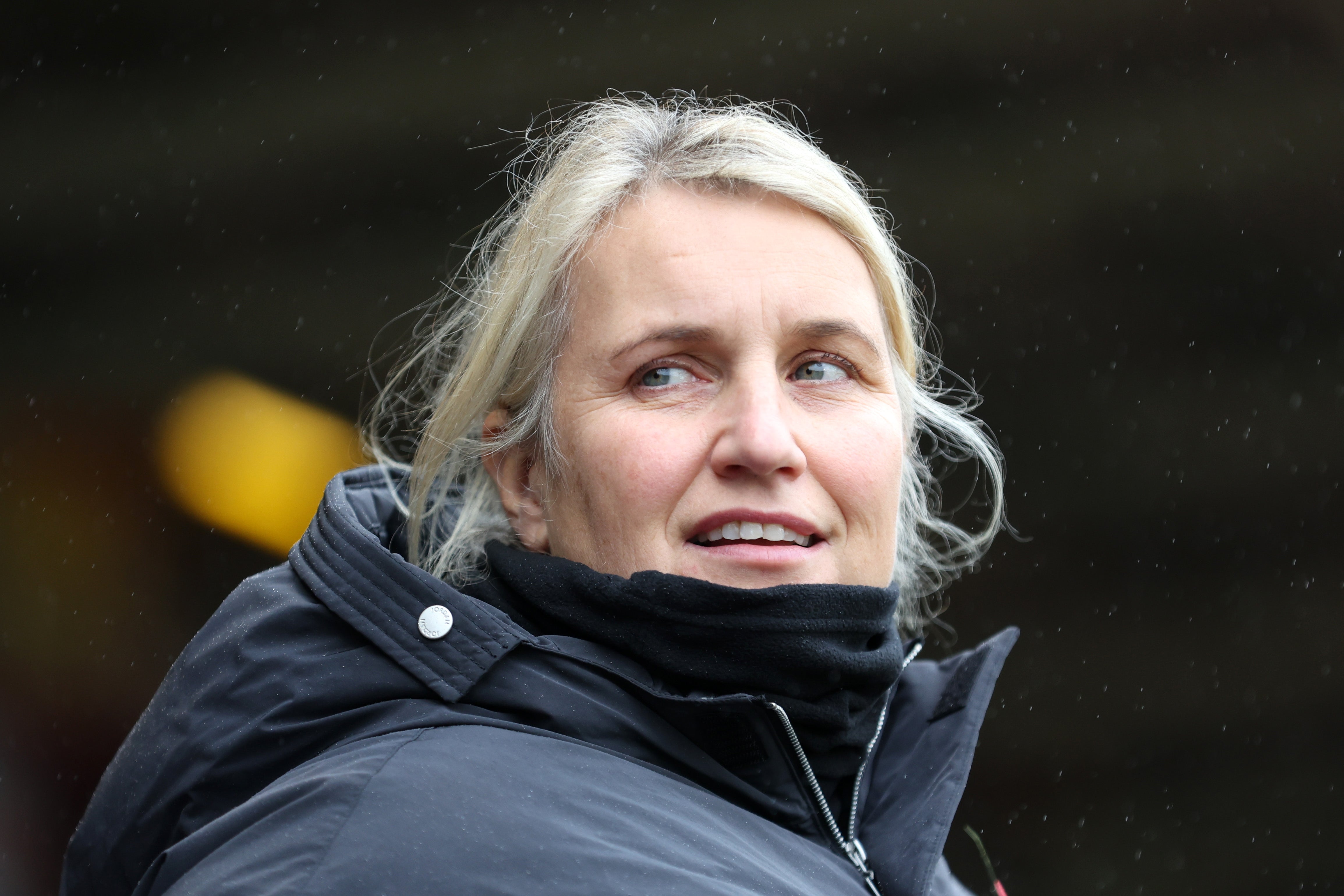Emma Hayes says women in football used to dealing with ‘systemic misogyny’
Emma Hayes reveals her thoughts after Joey Barton was widely derided for his comments on women in football

Your support helps us to tell the story
From reproductive rights to climate change to Big Tech, The Independent is on the ground when the story is developing. Whether it's investigating the financials of Elon Musk's pro-Trump PAC or producing our latest documentary, 'The A Word', which shines a light on the American women fighting for reproductive rights, we know how important it is to parse out the facts from the messaging.
At such a critical moment in US history, we need reporters on the ground. Your donation allows us to keep sending journalists to speak to both sides of the story.
The Independent is trusted by Americans across the entire political spectrum. And unlike many other quality news outlets, we choose not to lock Americans out of our reporting and analysis with paywalls. We believe quality journalism should be available to everyone, paid for by those who can afford it.
Your support makes all the difference.Chelsea Women manager Emma Hayes believes male privilege has been at the centre of football in England.
Joey Barton was heavily criticised for comments he made on social media suggesting that women “shouldn’t be talking with any kind of authority on men’s football.
Barton went on to appear on Piers Morgan’s talk show on Thursday where he claimed women football pundits were hired to “tick boxes”, but argued he was not sexist.
Hayes, who has routinely stood up for values she believes in during her role as Chelsea manager said, when asked about the comments in a press conference on Friday: “The realities are male privilege has always been at the centre of football in this country,
“I feel that sport is the last place in society where that male privilege exists.”
Hayes is due to leave Chelsea at the end of the season and take up her new role as head coach of the United States women’s national team, but has also worked as a pundit across men’s and women’s football.
“I don’t expect any individual to understand their privilege. Nonetheless you only have to see scores of women across the internet or in the business - whether that’s coaches, presenters, players - we’re routinely used to dealing with systemic misogyny, bullying and behaviour that has been pretty normal for a large part of the football public,” Hayes said, reported by the BBC.
“If you haven’t experienced systemic misogyny, like lots of us have, you can’t for one moment understand how detrimental some of these conversations are knowing that anything anyone says just enables an absolute pile on, particularly on social media,” she said.
“When it comes to the sport of football in this case, we have to remember that society isn’t always as well represented across the media or across the game in coaching or playing.”
Join our commenting forum
Join thought-provoking conversations, follow other Independent readers and see their replies
Comments